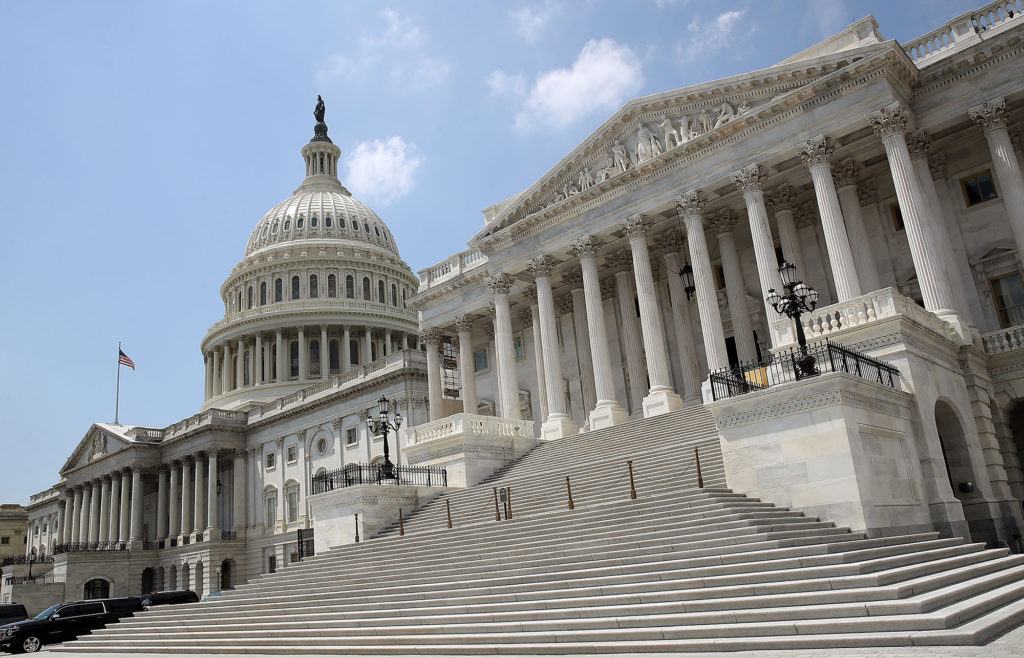
The House has passed a $733 billion defense bill that could allow electric cooperatives that serve military bases to benefit from new infrastructure grants. The action comes about two weeks after the Senate approved a different version of the legislation that makes it easier for co-ops to pursue carbon-capture projects.
A compromise still must be worked out by a conference committee of negotiators from the House and Senate, which will decide which provisions are included in the final National Defense Authorization Act. The bill, which empowers the Pentagon to spend money in fiscal year 2020, will then go back to both chambers for a vote, likely sometime between mid-July and the end of September.
The House voted 220-197 on Friday to pass its version of the legislation, which includes a provision to amend the definition of “community infrastructure” to permit co-ops to participate in the Defense Community Infrastructure Pilot Program. The 10-year program authorizes the secretary of defense to make grants to states and local governments to improve infrastructure that benefits military bases or the communities that support them.
Co-ops serve more than 80 military bases and other Department of Defense facilities in 38 states, according to NRECA research. They also own, operate and maintain the electric distribution grid at 24 military installations through utility privatization contracts. Nearly a third of the Army privatization contracts and 45% of Air Force privatization contracts are held by co-ops.
The grant program has been open only to state or local government-owned facilities, such as municipal utilities, since it was authorized about a year ago. With the House-approved change, not-for-profit co-ops would be on par with those utilities. The pilot program requires grant recipients to contribute at least 30% of the total project cost, but that requirement is waived when the infrastructure improvements are made in rural areas or when the projects are “related to national security.” Rural areas are defined as cities, towns or unincorporated areas with less than 50,000 residents.
“Electric co-ops are a key provider of services to our military installations, esp. those in rural areas like southern NM,” tweeted Rep. Xochitl Torres Small, D-N.M., on June 12. “With my amendment, electric co-ops will now be able to use fed. grants to update their infrastructure & improve our nation’s readiness.”
The Senate version of the bill includes legislation supported by NRECA that would make it easier for co-ops to get federal approval for carbon capture, utilization and sequestration projects. The bipartisan legislation, known as the USE IT Act, also would make it easier to get permits for CO2 pipelines.
Basin Electric Power Cooperative CEO Paul Sukut told a Senate panel in February that he supports efforts to help co-ops develop technology to capture carbon dioxide emissions from coal-fired power plants and turn them into useful products.
Sukut testified before the Senate Environment and Public Works Committee in support of the bill by Chairman John Barrasso, R-Wyo., and Sen. Sheldon Whitehouse, D-R.I. The bill would spur new strategies to remove CO2 from the air and store it permanently underground or transform it into marketable commodities.
Basin Electric, which is based in Bismarck, North Dakota, is a partner with NRECA and Tri-State Generation and Transmission Association in the Integrated Test Center at Dry Fork Station in Wyoming. The test center, overseen by the state, provides a place for researchers to “explore new and innovative solutions” to reduce CO2 emissions, Sukut testified.
“The USE IT Act will support the type of great research already happening in Wyoming at the Integrated Test Center and around the country,” Barrasso said in a recent statement.
The Senate bill also would codify an executive order issued in March by President Trump to protect the nation against electromagnetic pulses and geomagnetic disturbances. The House bill simply calls for the elimination of the current EMP Commission since Trump’s order addresses the issue the panel was created to help solve.
EMPs are caused by the detonation of a nuclear device miles above the Earth’s surface and can affect electronics within its impact area. A geomagnetic disturbance can be caused by solar flares hitting the earth, primarily affecting the electric and telecommunication sectors if the flares’ currents travel along the utility wires.
The executive order calls for a government-wide effort to prepare for and mitigate the national security threat from EMPs and GMDs. It also calls for the government to work with electric utilities and other private stakeholders to develop best practices to address the potential threats.
A three-year study by the Electric Power Research Institute, released in April, concluded that America’s electric transmission system would largely survive an EMP caused by the high-altitude explosion of a nuclear warhead.